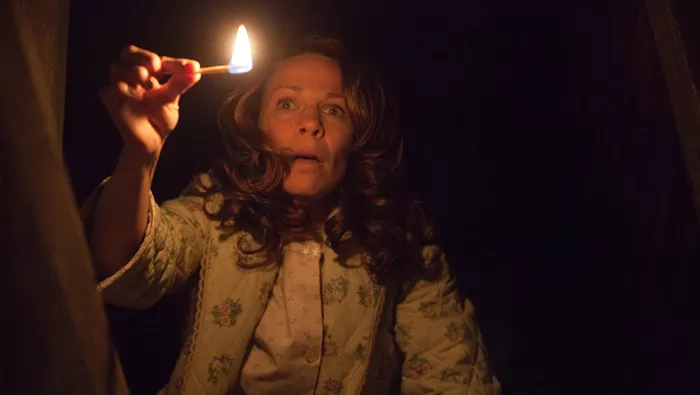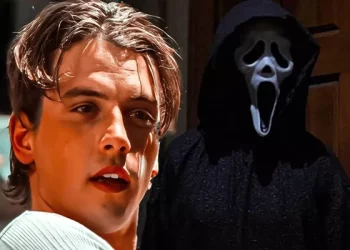The world of cinema has long been fascinated with tales that claim to be based on real events. Among the spine-chilling horror movies that have left audiences questioning reality, ‘The Conjuring’ stands out. This film, directed by James Wan and released in 2013, claims to depict a true story. However, the extent to which it aligns with reality is a matter of intrigue and controversy.
Exploring the Origins: The Conjuring’s Alleged True Story
The central characters of ‘The Conjuring,’ Ed and Lorraine Warren, are portrayed as paranormal investigators who help a family plagued by supernatural occurrences. The film is said to be based on their case files, particularly the Perron family haunting in Harrisville, Rhode Island, during the 1970s. The Warrens, renowned demonologists, purportedly documented this as one of their most chilling cases.
The Perron Family Haunting: Fact or Fiction?
The alleged true events that inspired ‘The Conjuring’ revolve around the Perron family’s harrowing experiences in a rural farmhouse. Reports suggest that the family encountered disturbing phenomena like unexplained noises, apparitions, and physical assaults by unseen forces. Bathsheba Sherman, a rumored malevolent spirit connected to the property’s history, is depicted as the primary antagonist in the film.
However, skepticism arises when examining the accuracy of these claims. While the Perron family insists that the events depicted in the movie are genuine, critics and skeptics question the lack of tangible evidence supporting these supernatural occurrences. Additionally, historical records about Bathsheba Sherman’s malevolent nature are scarce, casting doubts on her portrayal as an evil entity.
See Also: Why is The Exorcist so Scary?
Ed and Lorraine Warren: Real-Life Paranormal Investigators
At the core of ‘The Conjuring’ lies the portrayal of Ed and Lorraine Warren, renowned figures in the realm of paranormal investigations. The Warrens, who claimed to have investigated thousands of paranormal cases, founded the New England Society for Psychic Research. However, their credibility remains a subject of debate among skeptics and believers alike.
The Warrens’ involvement in the Perron family case, as depicted in the movie, raises questions about the authenticity of their methods and the evidence they presented. Critics argue that their investigations were often steeped in religious beliefs and lacked scientific rigor, leading to skepticism about the legitimacy of their findings.
The Controversies Surrounding ‘The Conjuring’: Legal Battles and Criticisms
The success of ‘The Conjuring’ sparked controversies beyond the realm of paranormal beliefs. Legal battles ensued as individuals associated with the alleged real events portrayed in the film came forward, claiming misrepresentation and exaggeration. The veracity of the story’s depiction was questioned, leading to debates about the responsibility of filmmakers in portraying real-life events.
Moreover, the horror genre’s tendency to sensationalize and dramatize events for entertainment purposes has drawn criticism. Accusations of exploiting real people’s traumas for commercial gain have been leveled against the creators of ‘The Conjuring,’ highlighting ethical concerns in adapting purportedly true stories into mainstream cinema.
The Influence of Belief: How Perception Shapes Reality
One of the intriguing aspects of ‘The Conjuring’ and similar films purportedly based on true stories is the power of belief in shaping perceptions of reality. The phenomenon of ‘truthiness,’ where something feels true based on gut instinct rather than evidence, plays a pivotal role in how audiences perceive and accept the film’s authenticity.
Psychological studies suggest that people often rely on cognitive biases and subjective experiences to validate their beliefs. In the case of ‘The Conjuring,’ individuals inclined to believe in the supernatural may find the alleged true story more convincing despite the lack of empirical evidence. This influence of belief blurs the line between fact and fiction, contributing to the enduring fascination with the film’s authenticity.
Conclusion: Navigating the Murky Waters of Truth in Entertainment
‘Is The Conjuring based on a true story?’ remains a question that elicits varied responses and fuels ongoing debates. While the film claims to be rooted in real events, the lack of concrete evidence and the conflicting accounts surrounding the Perron family haunting cast doubts on its authenticity.
The allure of horror films based on true stories lies in their ability to captivate audiences with tales that purportedly transcend fiction. However, as consumers of entertainment, it’s crucial to approach such narratives with a critical eye, acknowledging the blurred lines between reality and creative storytelling.
Ultimately, ‘The Conjuring’ serves as a reminder of the fine balance between entertainment and ethical considerations when depicting alleged true stories, urging audiences to navigate the murky waters of truth in the realm of cinematic storytelling with discernment and skepticism.
























